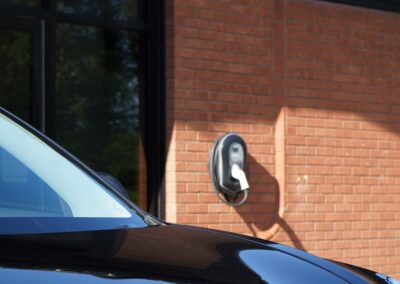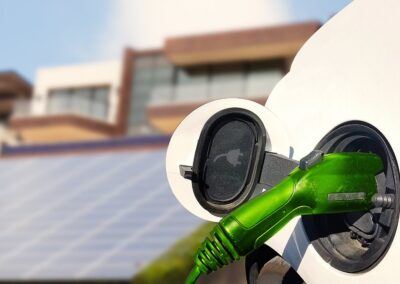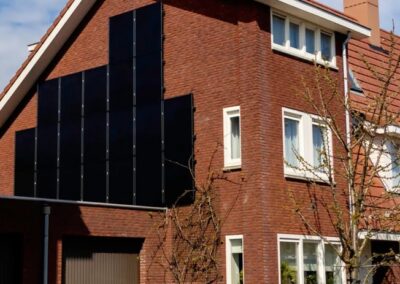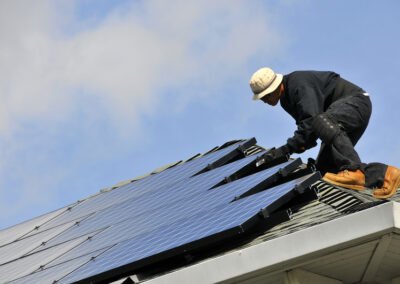Solar Vehicle Charger, Mississauga
For homeowners looking for sustainable ways to fuel their vehicles and reduce their overall carbon footprint, having a solar vehicle charger installed not only reduces your environmental impact, but makes economic sense.
Request InformationSchedule Service
Solar Vehicle Charger, Mississauga
Owning an electric vehicle means that you will no longer be wasting money on gas. This is all the more important as gasoline prices continue to rise all across the country. However, months into constantly charging your vehicle, you may notice that there has been a significant increase in your electric bill. Hooking your electric vehicle charger to a solar panel system for a solar vehicle charger is a great way to counteract this, and is often used by homeowners for fast, efficient, and emissions-free charging.
With many governments looking to phase out the sale and use of gasoline vehicles, consumers are turning to electrically-powered cars. Manufacturers are also increasing their electric vehicle options, making it so that the demand for sustainable energy has increased. With this demand, the prices of electric vehicles and solar power are dropping dramatically, making it a great time to invest in a solar vehicle charger.
Homeowners unfamiliar with solar power may be unsure about the feasibility of powering a vehicle with sunlight. However, modern advances in technology have allowed the installation of a solar energy system to be more than enough to efficiently power both the modern home and an electric vehicle. The amount of solar panels needed can vary depending on many factors, but in some cases, a small solar panel array of just 10 panels can be enough to charge a vehicle’s battery.
Contact MADE ELECTRIC for more information on solar vehicle chargers! We operate within the GTA and Mississauga, and would be happy to help you through the process of transitioning to solar power. Whether you’re looking to have solar panels installed for your home, need help in picking out the perfect solar vehicle charger, or have questions about connecting your solar panels to your current charging station, we are here to answer your call.
Frequently Asked Questions (FAQs)
What factors determine how many solar panels I will need for my solar vehicle charger?
The more power that you will need to power your car, the more solar panels will be required. The type of electric vehicle you drive, how much you drive, and the battery system within the solar panel system therefore determines the amount of solar panels needed for the home. Different vehicles have different specifications in how they burn energy. How much you drive can also affect how much power you’ll need. Shorter round-trip commutes to work, for example, (often in denser urban areas) will require less panels. Special attention should be paid during installation to ensure that your solar energy system will have a good battery capacity. A licensed electrician will be able to work with you to calculate how much energy your vehicle will require per day (and therefore how many solar panels will need to be installed for your home).
How much does the average solar vehicle charger cost?
The total cost of all of the equipment plus installation can vary greatly depending on your charger/solar panel specifications, as well as the layout of your home. Charging stations can range in price from under $600 to a few thousand, while solar panels tend to hover around $3 per watt, or $3,000 for a 1 kW system. For many homeowners, the savings afforded by having a solar vehicle charger installed often pays for itself, as thousands of dollars can be saved from switching to solar power.
Where can I have my electric vehicle charger installed?
Charging stations are usually installed inside garages, where cars can be left charging overnight. Some, however, are installed outside along driveways. It’s important to ensure that your charging station will be installed in a place where it can sufficiently reach your vehicle without causing complications. For example, it should be installed at the right height so when you back into the driveway, you reduce the chances of hitting and damaging the equipment.




